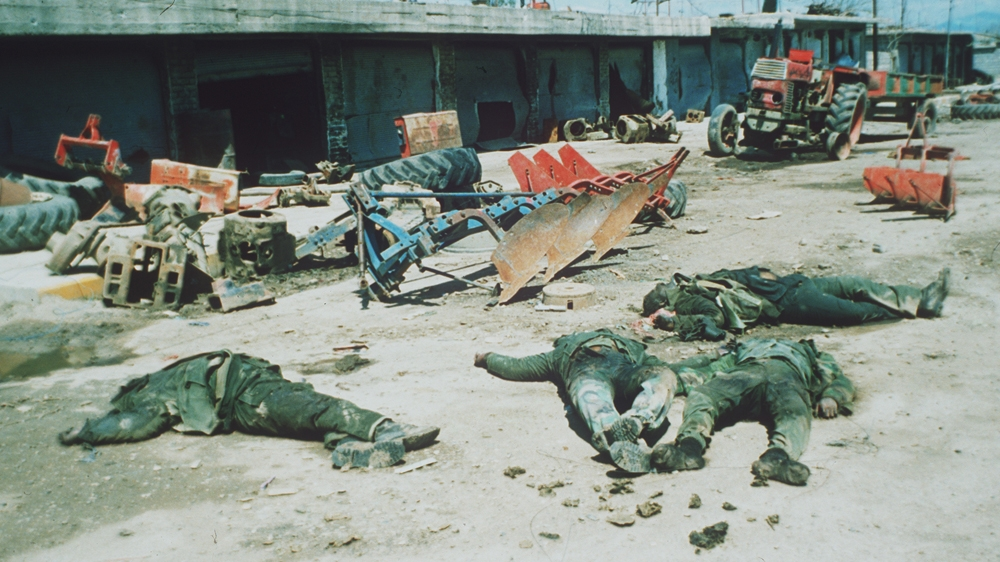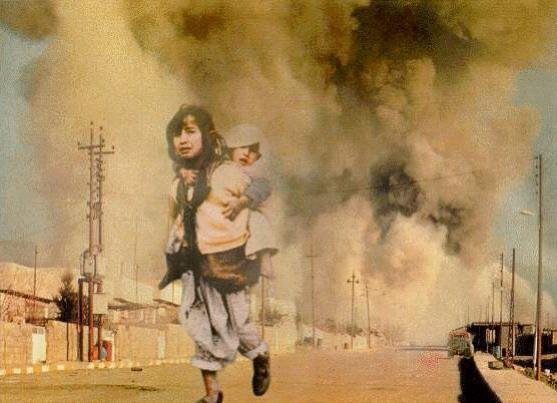Every year, families, survivors, and communities gather to remember the chemical attack on Halabja. On March 16, 1988, an ordinary day turned into a nightmare. Saddam Hussein’s Ba’ath regime launched a brutal chemical assault, killing 5,000 people and injuring between 7,000 and 10,000 more. The attack left lasting scars, not just on the survivors but on generations to come.


A Day of Horror
Halabja was full of life that morning. Children played outside, shopkeepers opened their stores, and families prepared meals. No one knew that within hours, everything would change forever. Warplanes appeared in the sky, and soon, bombs rained down. At first, people thought it was a regular airstrike. But then, a strange, sweet smell filled the air—almost like apples.
The gas spread fast, suffocating anyone who inhaled it. People collapsed in the streets, clutching their throats and gasping for air. Parents tried to shield their children, but the chemicals spared no one. Some ran into basements, hoping for safety, only to find the deadly gas sinking down and trapping them. Others fell where they stood, their eyes burning and their lungs failing.
By the next morning, Halabja had fallen silent. Bodies lay in homes, on roads, and in courtyards. Families were wiped out in an instant. The chemical attack on Halabja had turned the city into a graveyard.


The Pain That Never Fades
For those who survived, the nightmare never ended. Many lost everyone they loved. Children wandered the city in shock, searching for parents who would never return. Hospitals overflowed with victims suffering from burns, blindness, and severe breathing problems. The chemicals left lasting effects—many survivors developed cancer, lung diseases, and other chronic illnesses. Women exposed to the gas later gave birth to children with serious health conditions.
Rashid, who was just ten years old at the time, remembers running with his mother and younger sister. “She was only four. My mother carried her and kept telling me to run. But suddenly, she fell. My sister stopped moving. My mother tried to get up, but she couldn’t breathe. I screamed for help, but no one came.” Rashid survived, but his family did not. Like thousands of others, he was left with nothing but painful memories.
The trauma of that day never faded. Many survivors still suffer from nightmares, depression, and post-traumatic stress. The chemical attack on Halabja stole not just lives but futures.
Fighting for Justice
For years, survivors and activists fought to bring justice to the victims. In 2006, an Iraqi court officially recognized the attack as genocide. Some of Saddam Hussein’s top officials were convicted, but many believe justice is still incomplete. The chemical attack on Halabja was not just an assault on a city—it was an attempt to erase an entire community.
Activists continue to push for global recognition. They believe remembering Halabja is not just about honoring the dead—it’s about ensuring such atrocities never happen again. They call on world leaders to learn from history and take action against the use of chemical weapons.


Honoring the Past, Building the Future
Every year, on March 16, the people of Halabja gather to mourn and remember. Candlelight vigils, speeches, and ceremonies honor those who were lost. Schools teach new generations about the attack, ensuring that the memory never fades. A memorial now stands in the city, a permanent reminder of the lives taken too soon.
But Halabja is more than its tragedy. The city has rebuilt itself, standing as a symbol of resilience. Survivors have worked to restore their home, creating new schools, hospitals, and businesses. Life continues, even in the shadow of heartbreak.
A Message to the World
The chemical attack on Halabja was meant to destroy a people, but it failed. Halabja still stands. Its people still speak. Their voices serve as a warning to the world—such horrors must never happen again.
Time moves forward, but the pain remains. By remembering Halabja, the world not only honors the dead but also the survivors who live with the memories. Their fight for justice continues. Their story must never be forgotten.


